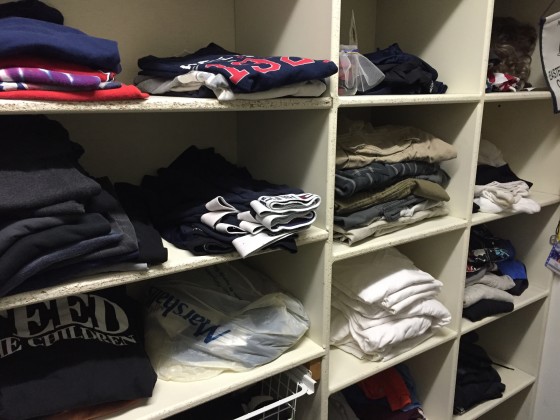
“Be Organized” is the fourth of my Six Simple Rules for a Better Life. I read a piece in Fast Company about the secrets of the most productive people. Following are some of the “Be Organized” strategies shared in the piece, along with some additional thoughts from me:
Belinda Johnson of Airbnb talked about the importance of “rigorous prioritization” and looking at your to-do list every morning to see what can be moved forward. She also said master delegators have a to-don’t list. That’s something I learned as a participant in the Strategic Coach program: partner with others who are great at, and love to do, the things on your to-don’t list.
The advice of Joy Cho of the lifestyle site Oh Joy! is music to my ears. She says if she doesn’t write everything down she will forget things. “I don’t get how waiters do it,” she said. “I have so much going on. Business. Kids.”
Some of my favorite “Be Organized” strategies didn’t exist when my book was published just over four years ago.
I use the built-in Notes app on my iPhone to write down all kinds of things. I love speaking into the phone and having it write down what I say. It isn’t perfect, but dictating and then editing is much faster for me than typing the whole thing—so much so that I often find myself dictating and sending e-mails from my phone rather from my laptop or my work desktop. (I don’t have, but should probably also look into, dictation software for my desktop and laptop.)
The phone can also be a great distraction, and turning off the notifications at certain times is a great “Be Organized” tactic, allowing you to focus on what’s important. Even if you don’t look at the phone, the sound of a call or of an arriving text message makes your mind wander, and each time your mind wanders you lose quite a time returning your train of thought to the project at hand. It’s been studied: interruptions add up to an immense amount of lost time.
Similarly, when I am working on a document or spreadsheet on my laptop or desktop, I close my e-mails, to avoid being distracted.
Because I forget things I don’t write down, the convenience of going to an incoming text by swiping from the lock screen is offset by the text becoming “read”. So, I’ve gotten into the habit of taking resisting the temptation to read the text message, instead just looking at the preview. I won’t open it if it’s something that requires me to do something I am not ready to do, including simply being a message I’m not prepared to reply to at that moment.
I continue to strive for in-box zero. An in-box full of messages, whether read or unread, creates great stress for me. To counter that, if I can’t reply to an e-mail right away, I make a note on my to-list and I save the e-mail in a properly labeled folder.
That’s the same system I used back in the day with paper, which I would put into files while noting the related tasks on my to-do list. I called that “files, not piles,” and that name fits nicely with my goal of in-box zero; of not having a “pile” of e-mails in my in-box. Just as an uncluttered desk is more productive, so, too is a uncluttered digital desktop.
What are some ways you stay organized for a better life? Please join the conversation with your comments…
Best regards,
David
